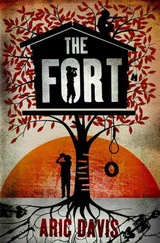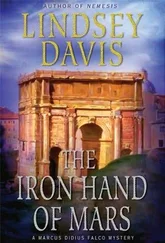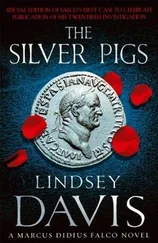THE AIR WAS hot and dry. I walked to the north shore and up to the forum. Whereas the principal building materials in Cyrenaïca had been red-toned, Tripolitanian cities were gold and gray. Lepcis Magna hugged the coast so closely that when I entered the forum I could still hear the sea, surging against low white sand dunes behind me. There should have been bustle that would have masked the noise of the surf, but the place was dead.
The civic center must date from the very beginning of the Empire, for the main temple was dedicated to Rome and Augustus. It stood in a cramped row with those of Liber Pater and Hercules-an old-fashioned, very provincial set to site so prominently. Perhaps this was not the real heart of Lepcis, however; the forum seemed to have been placed where it would be bypassed by those in the know. I looked across the square flagstones to the basilica and curia. Nothing doing. For one of the world's great commercial entrepôts, this was a sleepy hole. I then crossed the sunbaked open space and enquired at the basilica if they had any upcoming case in which Saturninus was involved? No. Calliopus of Oea? No. Did they know of a subpoena deliverer called Romanus? No, again.
The main temple, now opposite me as I emerged, had reassuringly familiar slim, smooth, Ionic columns, though even they had been given odd little floral sprigs between the volutes. I walked back to it and checked for messages: none. I left word myself of where I was staying in case either Scilla or Justinus turned up. I wanted to leave another message for somebody, but not here.
I retraced my steps down the silent side street between the temples and took the road into town. This was busier. Keeping to the shade on the left-hand side as it climbed slightly away from the shore, I passed or was passed by various laden mules and cheerful children pushing mountainously piled handcarts. Lockup shops and modest dwellings lined the streets, which were laid out in a neat enough grid. Activity was increasing the farther I walked. Eventually I came to the theater, and near it the market area where at last the hum was all I had expected in one of the great cities of the Emporia.
The main provisions market boasted two elegant pavilions, one round and drum-shaped with arches, one octagonal with a Corinthian colonnade-possibly built by different benefactors who had independent views on effect. On a long-winded inscription, however, a certain Tapepius Rufus claimed responsibility for the whole edifice; maybe he had quarreled with his architect halfway.
Beneath the kiosks' shade every kind of sale was being conducted on flat-topped stone tables, with the emphasis on domestic trade. Peas, lentils, and other pulses were piled in dry heaps; figs and dates were set out on fruit stalls; both raw almonds and cakes made from almonds and honey were temptingly available. There were fish. There were cereals. It was the wrong time of year for grapes, but I saw vine leaves, both ready-stuffed or strung together in brine to take home and stuff as you chose. Butchers, advertising with crude pictures of cows, pigs, camels, and goats, were honing their knives on a lion-footed bench in the weights and measures corner, while the weights and measures inspectors craned their necks over a hot game of draughts scratched on the ground.
Two streets away another Lepcis millionaire had built another commercial enclosure, this one with a dedication to Venus of Chalcis, where it looked as if large export contracts were being organized by evil, toothless, leather-skinned old negotiators who had no time to eat and no inclination to shave. No doubt this was the exchange for big business: olive oil, fish sauce, mass-market pottery and wild beasts, plus the exotics that came in from the nomads: heavy baulks of ivory, negro slaves, gemstones, and strange wild birds and animals. I found a banker who would honor my letter of introduction. Immediately I had funds on my person, a tout tried to sell me an elephant.
Seeing a lone male of foreign origin, persons enquired very helpfully whether I had need of a brothel. I smiled and refused. Some then went so far as to recommend their own sisters as clean, willing, and available.
I returned to the main market. There I found a pillar with some free doodling space and scratched up:
ROMANUS: SEE FALCO AT THE HOUSE OF RUTILIUS
If you sound as if you know people, sometimes they believe it is true. Besides, by now I had a disconcerting feeling that Romanus must indeed be an old acquaintance. If so, it was bad news.
I went to a bathhouse to test the local atmosphere. I got myself shaved, just as badly as anywhere else in the Empire. The theater was another Tapepius Rufus bequest, elegant in style and positioned with stunning views over the sea. I looked at the program: not much happening there. No point, since the big draw in Lepcis was the coming end-of-harvest Games in the arena outside town. Those were advertising that ever popular program, "to be announced," though I noticed they were to be presided over by my host, the visiting Roman dignitary, Rutilius Gallicus. I wondered if anyone had told him about that yet.
I had done enough for a first scout around. It was time to resume contact with my family before they became tetchy being polite to the envoy, while I was out enjoying myself.
I followed the directions Rutilius had given me to the lavish maritime villa some local personage had made available to him (no doubt hoping to court popularity for Lepcis when the surveyor was apportioning land). The setup seemed secure. In case of trouble over his report, Rutilius had been assigned a squad of military bodyguards; he had also brought his own small domestic staff. All he needed for his own comfort now were a few politically neutral houseguests he could talk to, and we had provided those.
I told him he had to wave the white napkin at the Games; he groaned.
* * *
For the next few days I spent my working time trying to pin down the three lanistae I was studying. Saturninus was the easiest to locate. After all, he lived here. Rutilius gave me his address and I marked the house. Saturninus himself appeared the first day I was on watch outside. It was a shock to have come right across the dolphin-filled Mediterranean to find myself scrutinizing a suspect I last encountered months before in Rome.
He looked the same, but wearing loose, bright nomad robes-stylishly in keeping with his home province. Short, muscular, broken-nosed, balding, confident, urbane. Beringed to the point that I felt an austere Roman distrust of him. Still, I had always recoiled from his entrepreneurial attitude. He was not my type. That did not necessarily make him a criminal.
He swanned past without noticing me. I was lying in the road with a big hat over my eyes, near a tethered donkey that I pretended was in my charge. I was doing my best not to fall asleep, though sloth was beckoning. At least now that my subject had made his move I had to bestir myself and follow him.
He came and went: forum (briefly); market (longer); baths (longer still); his local gladiatorial barracks (an interminable stay). Whenever he moved around in public places he made himself available to men of substance. He mingled. He laughed and chatted. He leaned down and spoke to little boys who were out with their fathers. He diced idly; he dallied coarsely with waitresses. He sat at tavern tables watching the world go by, so the passing world could come across and greet him like an uncle who had presents to hand out.
Presumably at his barracks he trained fighters just as he had done in Rome, though on a more limited scale. The outlets here were hardly the same as the great imperial festivals. But his men would appear at the next Lepcis Games. That might be worth watching.
Читать дальше












